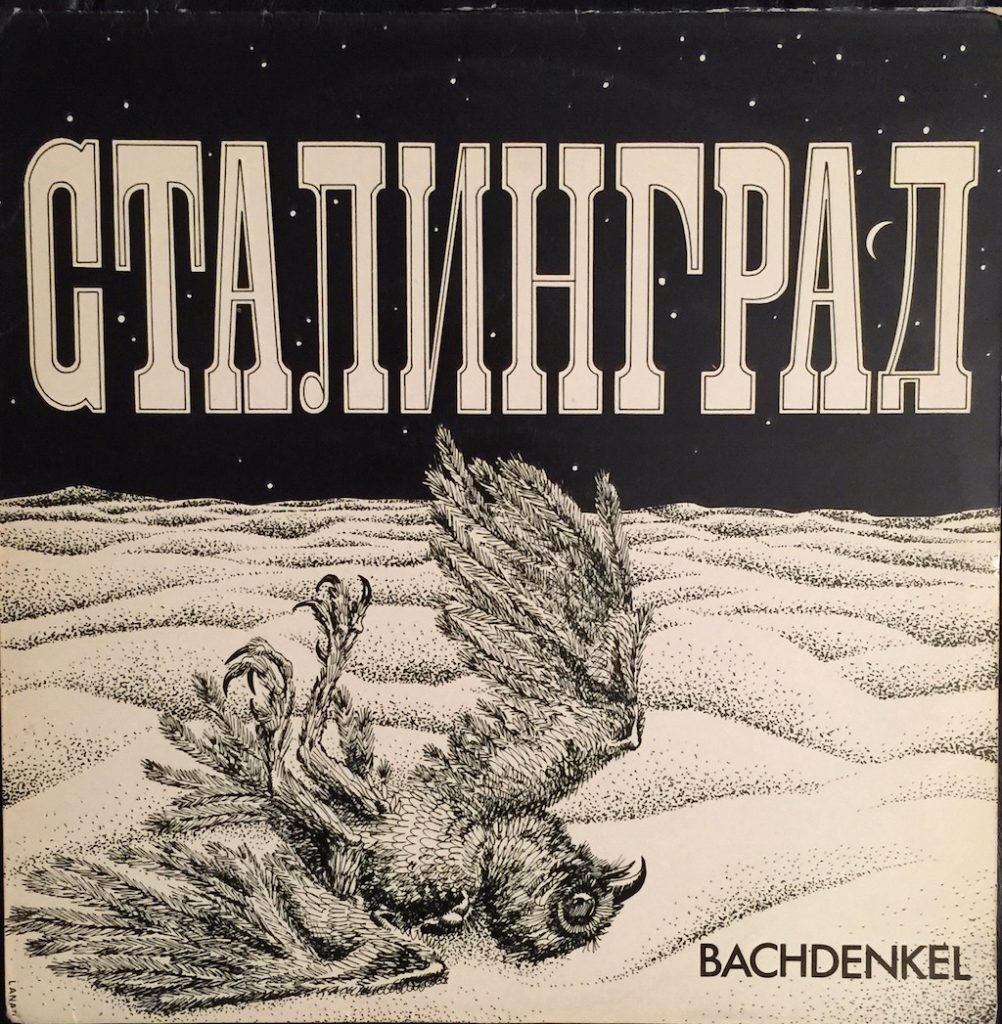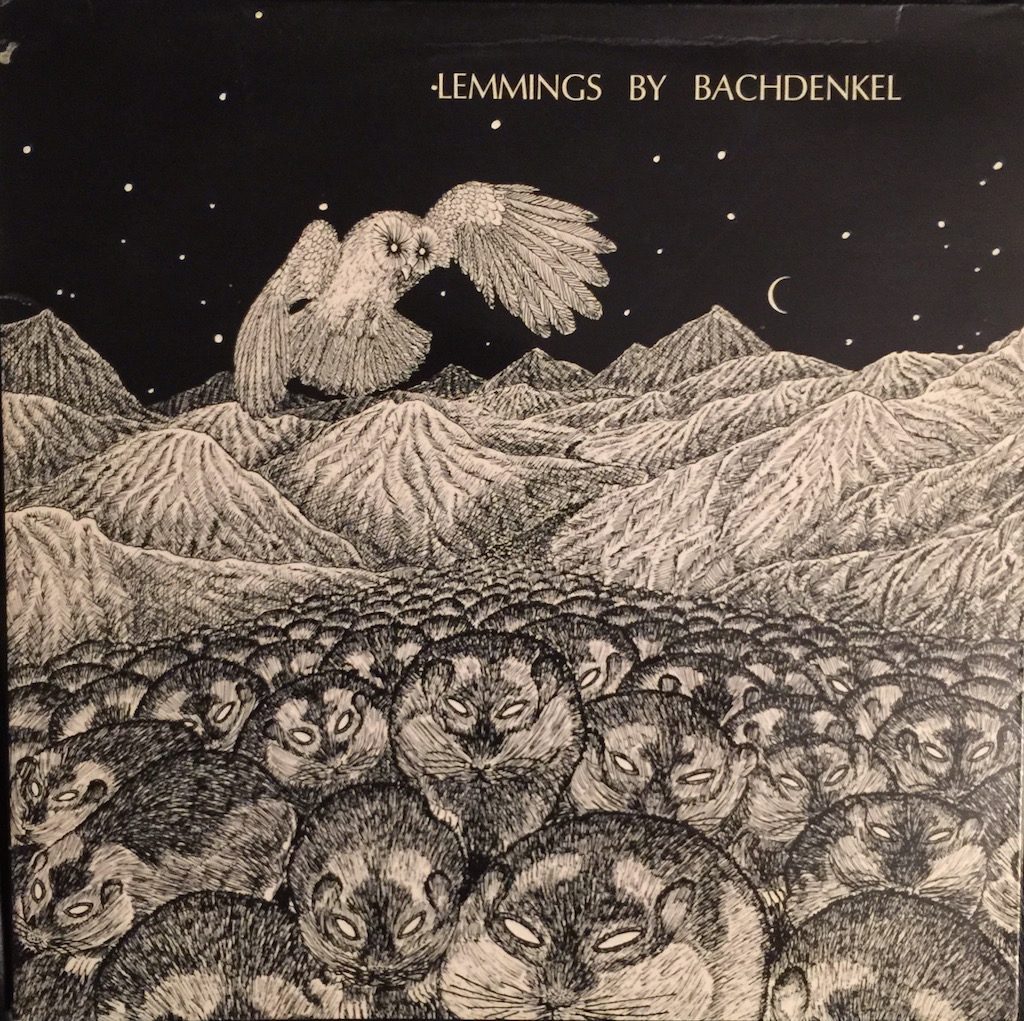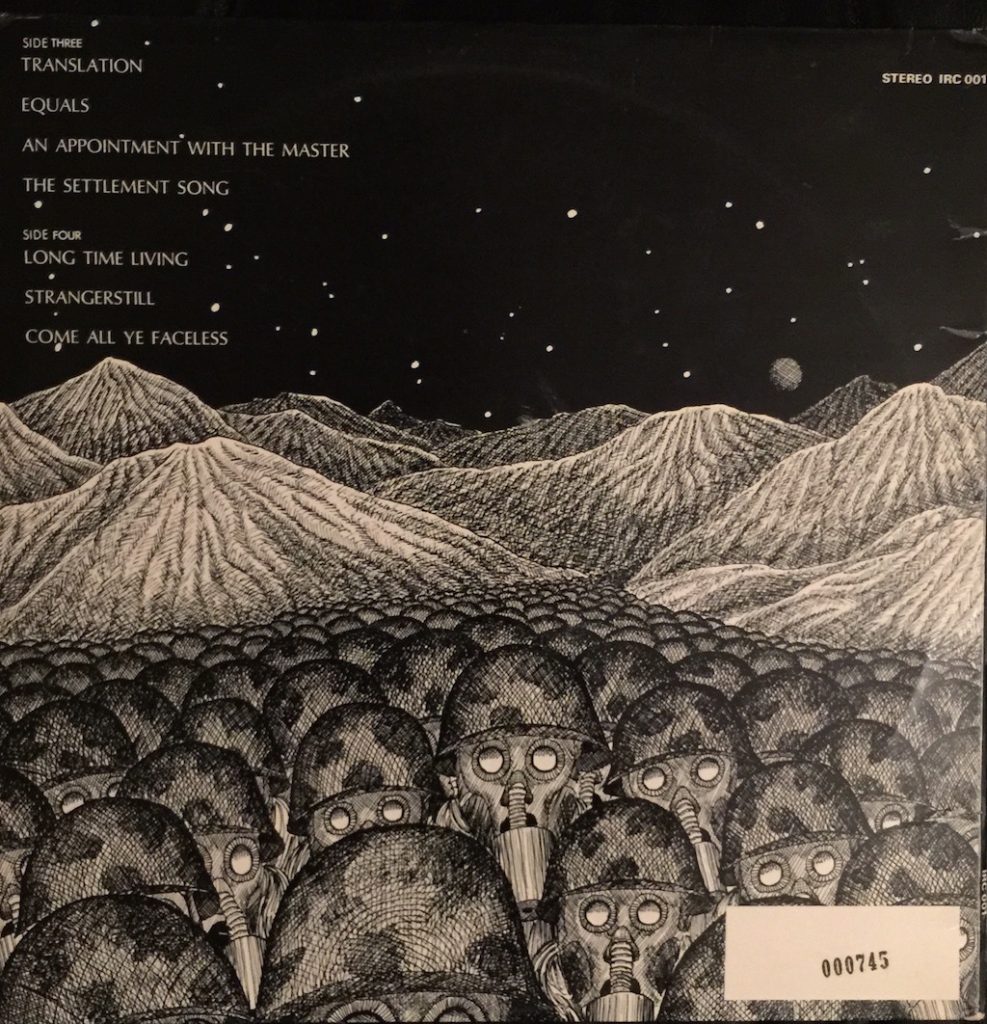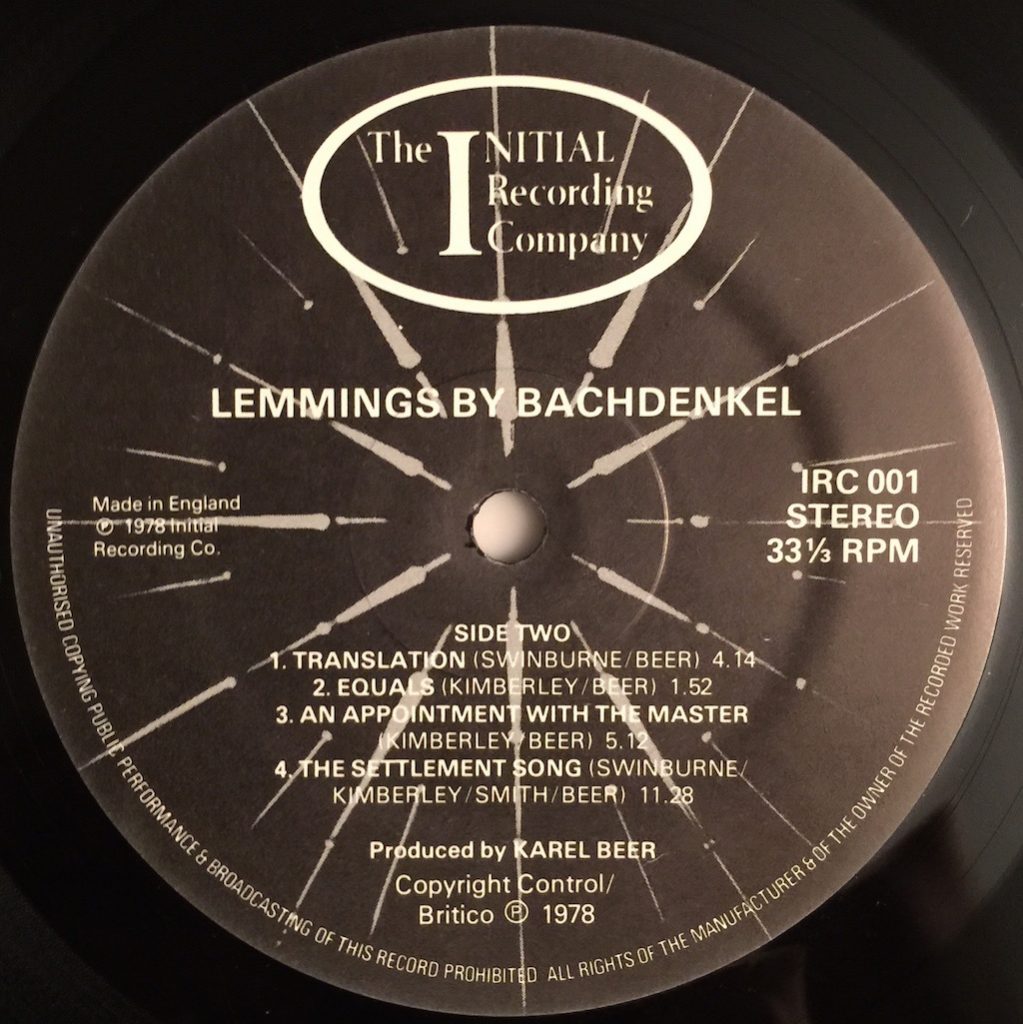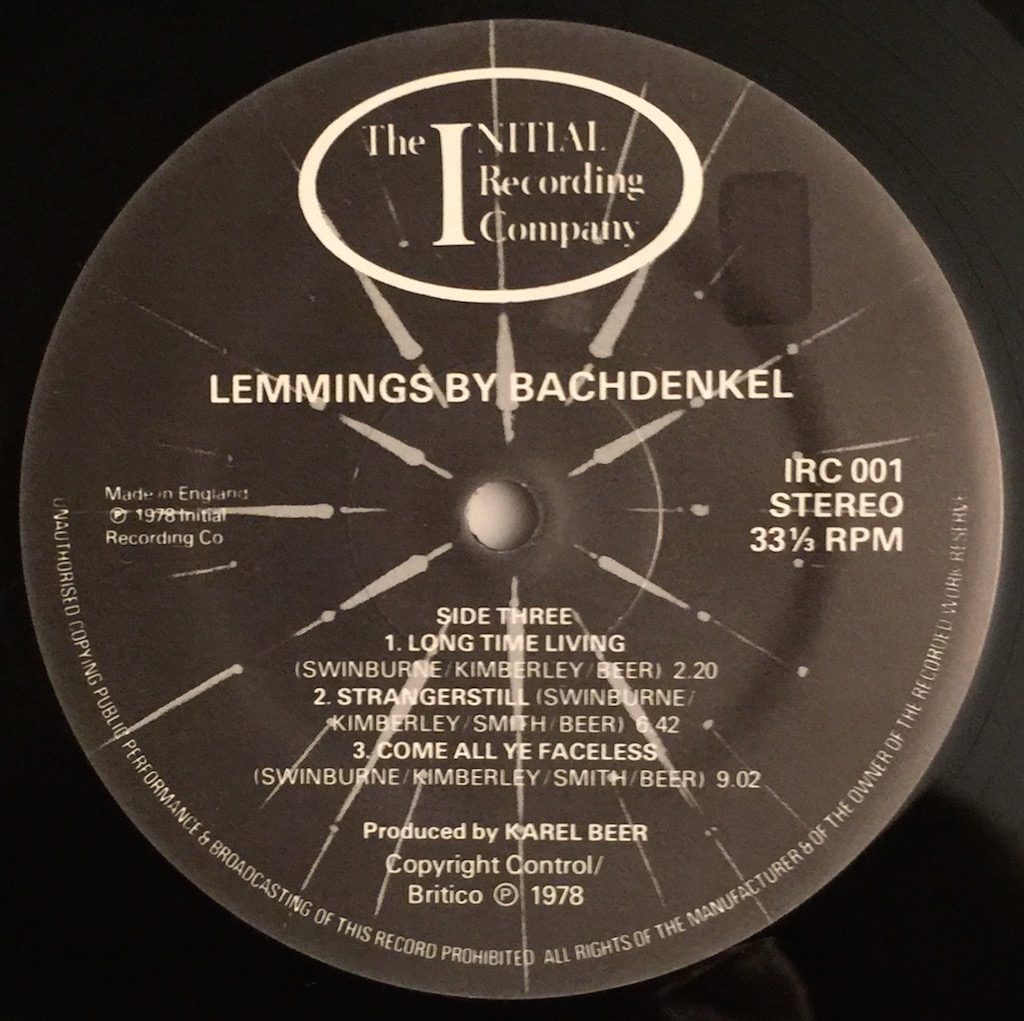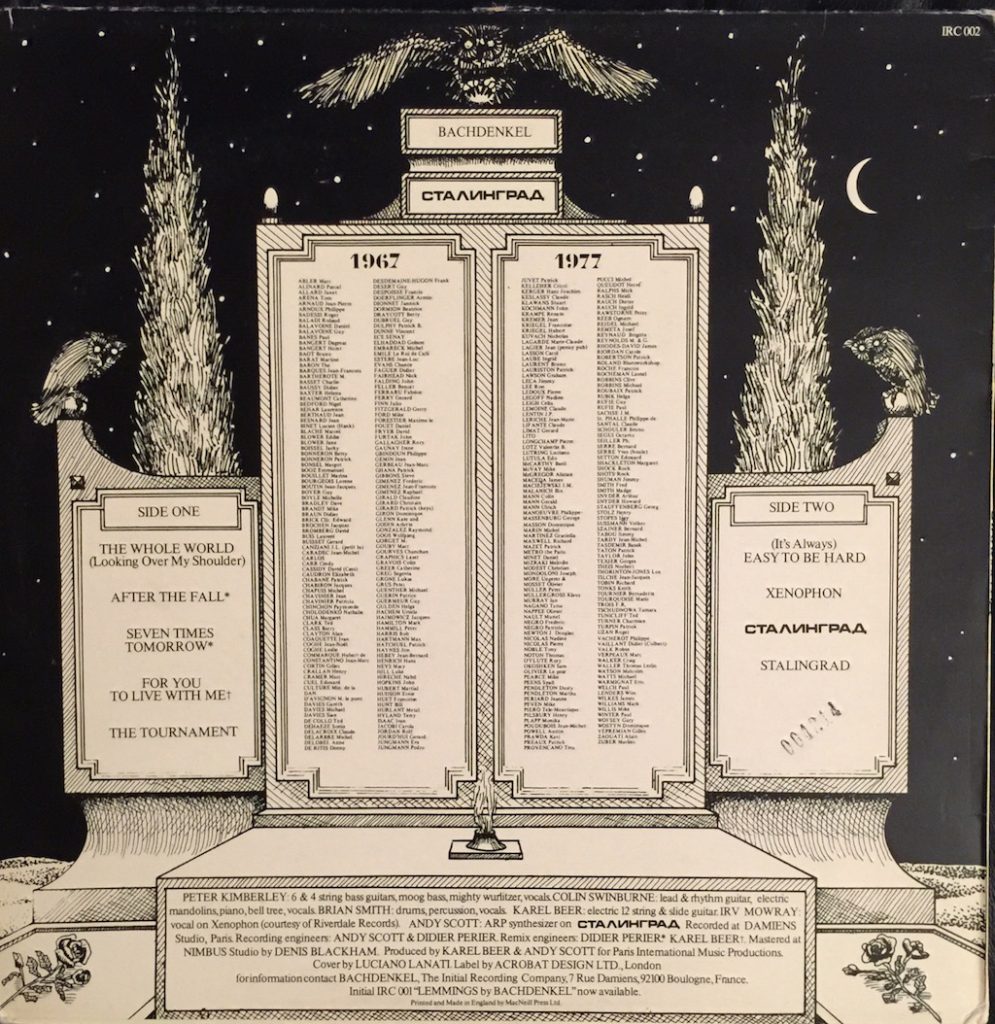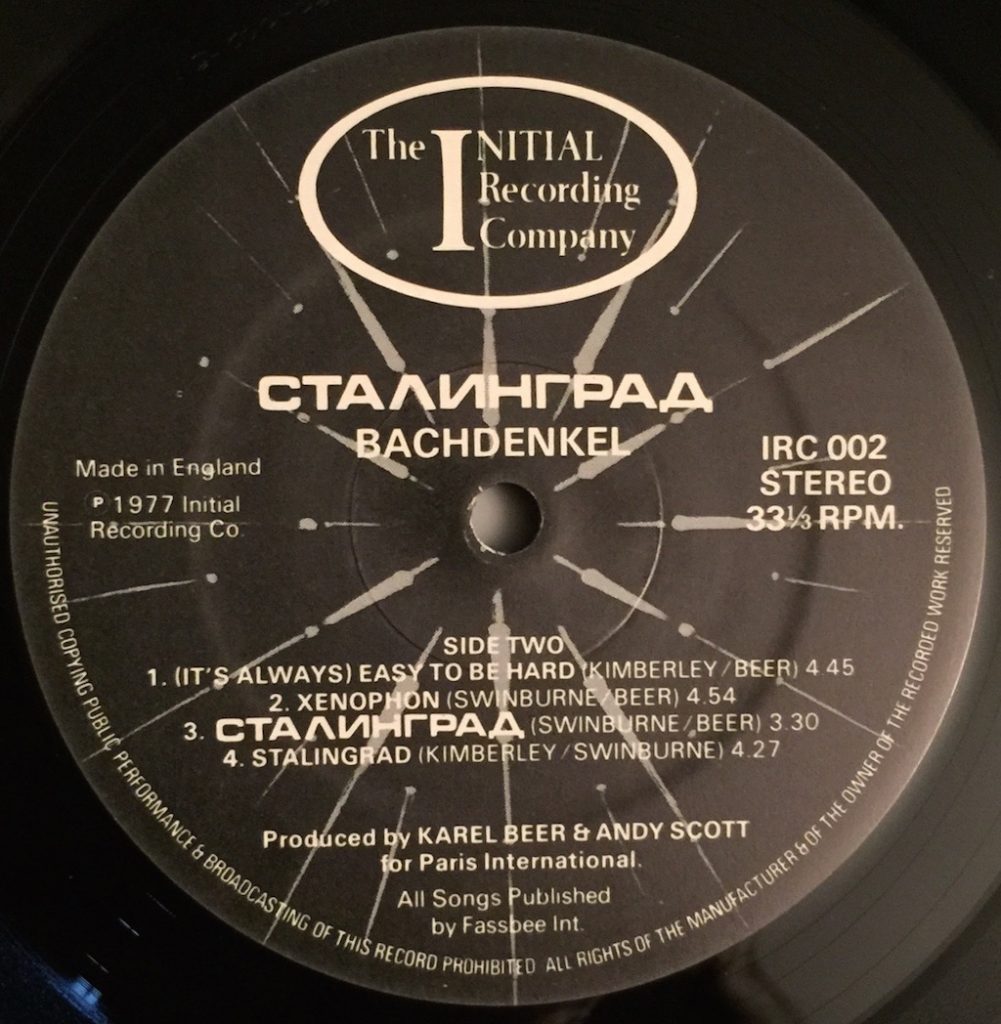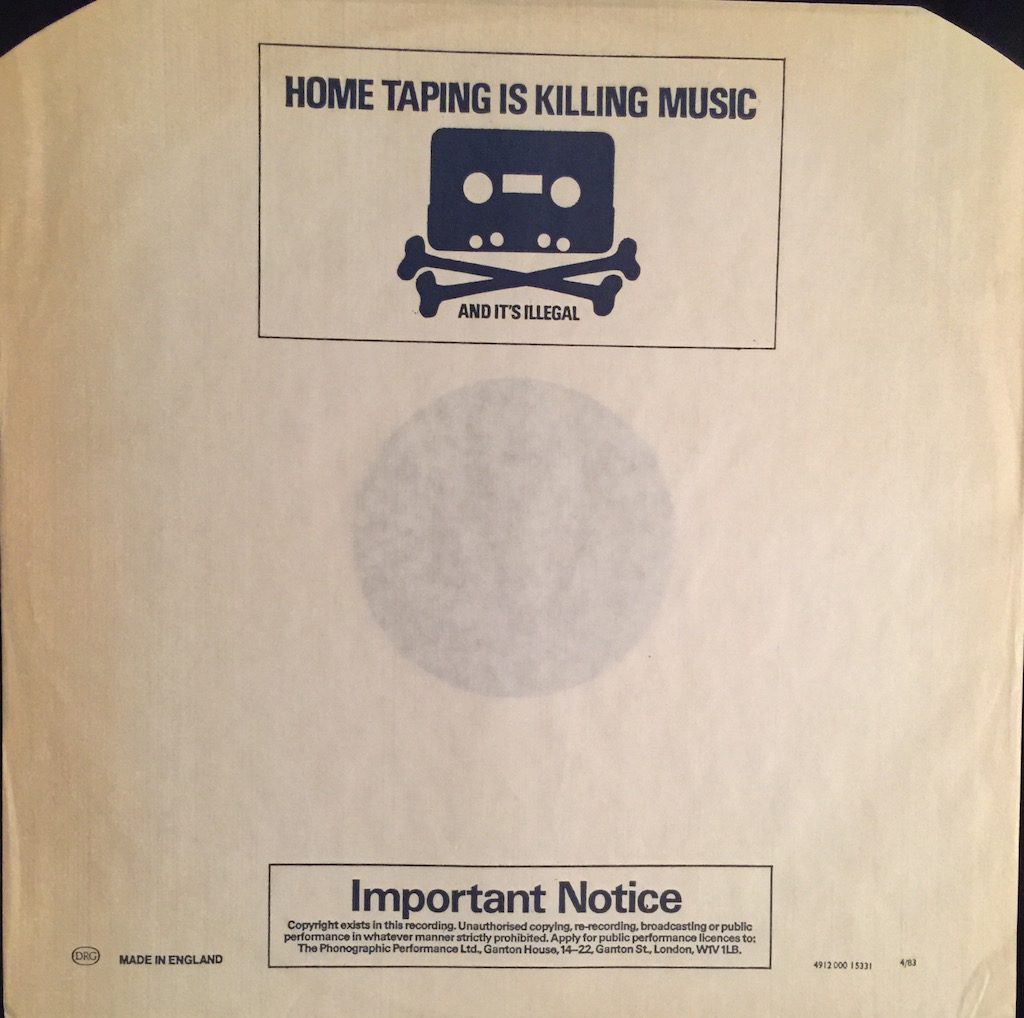Bachdenkel- Lemmings, Staligrad
Anybody who was into this band back in the day was probably a pretty deep “head”—it’s one thing to find some long lost album that has been forgotten in the crush of time, but these guys seemed to be pretty obscure even when they were at their peak.
Their first album—Lemmings—was released by Philips France. I have yet to see a copy in the flesh. Most of the old pressings in circulation are somewhat later issues by the Initial Recording Company. My copy of Lemmings is “numbered” but has no “bonus EP”- the reissue on Initial was sold without the EP, but was supposedly unnumbered.
Most of the critical attention paid to this band in later years has focused on Lemmings—for good reason: it is in some ways the more exotic sounding album.
This band has it all—good songwriting, excellent playing, great vocals and an underlying hard rock sound to drive what is generally regarded as a “progressive” rock venture. But, it doesn’t neatly fit into the keyboard heavy “prog” rock style- there are wild guitar excursions here, great basslines, and vocals reminiscent of late era Beatles. It’s a cool album to listen to. Perhaps because it is so busy, it doesn’t have quite the fidelity of my copy of their later Staligrad—when things slow down, and the instrumentation is less dense and complex, it sounds better- but I have this complaint on many records- I think it is the nature of the recording process. (Blackham-Nimbus mastering here, as with Staligrad, see below). Don’t get me wrong, this is a good sounding record, but I think Staligrad is better sonically, if not musically.
The label side numbering is deliberately confusing, but if you were listening to this album at the time it was issued, it probably didn’t matter.
Musically, the album was probably adventurous for its time and to a degree remains so—it is an interesting, unpredictable mix of psych and more exotic motifs combined with hard rock, phasey- sounding vocals and time signature changes that make for something out of the ordinary. I keep thinking of late Beatles here on the vocals but maybe it’s just the “trippy” aspects—this certainly has no “pop” character- no singles that would break through on the radio and little to distinguish it—other than great musicianship—from many other records of the era. I don’t listen to obscure stuff just for the sake of it- I’ve got to like it. And I do like this album. (I suspect this band was great on stage and sometimes, that doesn’t translate as well to a recording). Here I’m going to go contrary to the accepted wisdom and say that I prefer Staligrad, the second album, or at least the second side of that album.
The band’s second album—Staligrad—was released several years later and is usually given shorter shrift by critics and commentators. Maybe these folks haven’t listened to side 2 of this record—it’s fantastic.
The overall recording quality is excellent, but the songwriting and performances really come together on side 2 of Staligrad—it is harder rock than some of the more keyboard-centric “prog” but has those little filigrees –a tight wah-wah guitar “fill” or tasty high-hat work that neatly fill the space without excess and blend back into the bigger theme–that mark it as something special.
My copy is hand etched as “Bilbo-Nimbus” on side 2 and is a first class listen. (“Bilbo” is Denis Blackham, whose masterings in the era are very highly regarded, see, e.g. Bowie’s Hunky Dory).
inner sleeve- those were the days….
